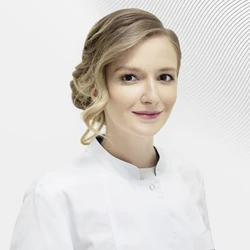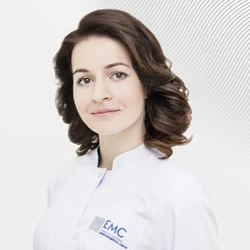Eating disorders: treatment of anorexia and bulimia
Eating disorders such as anorexia, which is food restriction, and bulimia, which are episodes of overeating, are increasingly common in modern society. Currently, we can talk about an epidemic of eating disorders.
Anorexia and bulimia tend to occur in teenage girls. They can be primary when they develop as an underlying disease, and secondary when they occur against a background of depression. As a rule, eating disorders occur when a teenager is unhappy with his appearance and wants to change. He's trying to solve the problem by losing weight.
You should always remember that food restrictions are a very pleasant state of lightness, flight, which helps teenagers cope with anxiety and bad mood. Therefore, in many cases, when teenagers openly declare their desire to lose weight in order to be like their idols, there is a desire to control their emotions or cope with anxiety.
Symptoms worth paying attention to
- the child eats in small portions;
- immediately after eating goes to the toilet;
- overly involved in sports;
- often weighs himself, counts calories;
- loses weight dramatically; He is fixated on his appearance, considers himself overweight, even if his weight is below normal.
In the presence of these symptoms, it is important to consult a specialist as soon as possible, because the further the eating disorder progresses, the more difficult it is for the patient to help, especially when physiological disorders begin. In girls, the menstrual cycle is disrupted, edema, general metabolic disorders, and damage to the gastrointestinal tract appear. Eating disorders lead to severe endocrinological disorders and can cause infertility.
Bulimia is the other side of anorexia. It is expressed in episodes of uncontrolled overeating, after which, as a rule, teenagers cause vomiting. Overeating helps to cope with anxiety and emotional stress. Children often do not feel guilty afterwards for eating too much. Regular vomiting is dangerous. It leads to metabolic disorders, irreversible disorders of the intestinal tract. Therefore, if you notice a sharp increase in weight in a child, see that immediately after eating he goes to the toilet, find hidden food in his room, while at the same time he may be fixated on his appearance, you need to consult a specialist. Additional causes for concern may be sleep disorders, mood swings, and irritability.
Each family has its own traditions and eating habits, and sometimes adults teach teenagers diets that they adhere to themselves. Against this background, a child's eating disorder may not be pronounced. Sometimes parents' adherence to strict diets can provoke eating disorders in children.
It is wrong to prioritize the idea of the right weight or the right amount of food that a person should consume. For example, in a restaurant, parents can make a remark to a teenager when he asks for dessert or fix it on his appearance, on his weight, compare him with someone they know in common or with his mother. This usually has a strong effect on girls who have a predisposition to eating disorders.
Treatment of anorexia and bulimia is a long process

It must be remembered that food restriction is a subjectively pleasant state, and teenagers become addicted to it, so they limit themselves over and over again. Treatment of anorexia and bulimia is recommended to begin in a hospital under the strict supervision of the clinic's doctors. It is rarely possible to cope with an eating disorder on their own through the joint efforts of the family, so it is better not to take risks and consult a specialist as soon as possible.
The main goal of treatment is to rid the patient of excessive fixation on his appearance. This is a long-term treatment, it includes many stages. But it always starts with solving physical problems: restoring the menstrual cycle and metabolism. An eating disorder is a life–threatening condition, and with critically low weight, the changes can be irreversible and the patient cannot be saved. Parents should keep this in mind. The advantage of the EMC is that the psychiatric clinic is part of a somatic hospital, where all types of diagnostics and doctors of all specializations are represented. A correction plan for each patient is developed jointly with endocrinologists, internists, pediatricians, and gastroenterologists. This is how the high effectiveness of treatment is achieved.
The European Medical Center (in Moscow) uses pharmacotherapy and psychotherapy for the treatment of anorexia and bulimia. Drug therapy is aimed at correcting emotional disorders and anxiety that occur against the background of an eating disorder. Pharmacotherapy, among other things, helps to regulate hunger and control appetite. In parallel, massive behavioral therapy begins, which helps the patient to change his lifestyle. Patients learn to adequately perceive their weight, work is carried out on motivation, changing eating habits, learning how to live without overeating and limiting themselves to diets.
The therapist also works with parents, trains them to support the child, to respond correctly to painful behavior. This becomes the key to a supportive environment in which teenagers return after hospital treatment and continue outpatient treatment.
The main prevention of eating disorders is the correct attitude to nutrition and perception of appearance in the family. It is very important that the family is neutral about food, adults do not make comments that the child eats too much or eats food that makes them fat. Healthy eating is necessary, but it is important that it is not the main value in the family.
The same applies to appearance. It's a big plus if a girl looks good, but it shouldn't be a super-valuable idea that the whole family's life is centered around. Unfortunately, eating disorders often occur in girls who practice ballet or sports that require maintaining a certain weight.
The task of parents is to treat their child carefully and, if alarming symptoms appear, do not postpone a visit to a specialist.
Why the EMC
The first and only clinic in Russia, created in the image of the world's leading clinics
EMC is a multidisciplinary center offering patients a high level of medical services and a personalized approach
Worldwide recognition and awards
 Learn more
Learn more
Worldwide recognition and awards
 Certificates and licenses
Certificates and licenses
Make an appointment for a consultation
Specify your contacts and we will contact you to clarify the details
and new products of the EMC

.webp)


